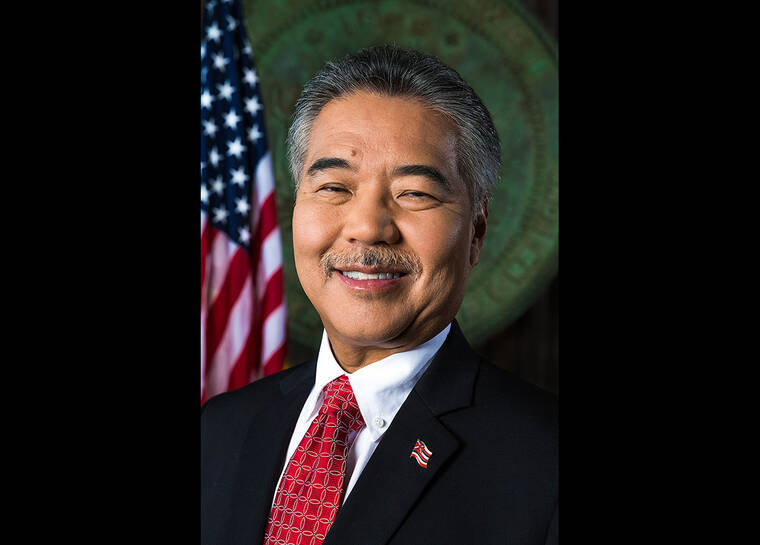Friday, June 24, 2022| Today’s Paper |
Share this story
IGE
Gov. David Ige quietly signed into law last week a bill establishing a “blockchain and cryptocurrency task force.”
Gov. David Ige quietly signed into law last week a bill establishing a “blockchain and cryptocurrency task force.”
The bill was the only cryptocurrency-related measure to survive during the last session of the state Legislature.
The cryptocurrency task force, created within the state Department of Commerce and Consumer Affairs, will review data regarding the virtual currency marketplace and compile that data into possible future legislative proposals.
However, two other cryptocurrency bills that failed to pass the Legislature would have expanded the allowable usage of the technology in the state.
The state’s Money Transmitters Act currently requires licensed money transmitters to have as much cash on hand as they have invested in crypto — a substantial barrier, considering the amount of money involved in the market.
Because of the Money Transmitters Act, Hawaii has gained a reputation among crypto users as being particlarly crypto-unfriendly. Two other bills that would have exempted cryptocurrency from the Transmitters Act failed to survive this year.
Since 2020, nearly all legal cryptocurrency transactions within the state has been permitted only through the auspices of the DCCA’s Digital Currency Innovation Lab, a pilot program wherein 15 crypto exchanges are able to operate without obtaining a state money transmitter license, in order for the DCCA to eventually gain insight on how to regulate the industry.
According to the DCIL, about 134,000 Hawaii residents transacted more than $800 million in virtual currencies through companies participating in the DCIL by the end of 2021.
The pilot progam was scheduled to close on June 30, which would have almost entirely halted all legal crypto transactions in the state.
“(The DCIL) was only meant to be a two-year study,” said Iris Ikeda, the DCCA’s Commissioner of Financial Institutions. “After June 30, we were set to have a wind-down period from July until December of this year, and come to a natural conclusion.”
But with the failure of the bills that would exempt crypto from the Transmitters Act, the DCIL pilot program was extended earlier this month until June 30, 2024.
Ikeda said the 15 exchanges currently enrolled in the lab have the option to renew their participation or carry on with their wind-down through the back half of the year as scheduled.
Ikeda said the wind-down will allow an exchange’s clients time to withdraw their investments before the exchange ceases operation in the state. Should no new laws be passed governing cryptocurrencies before mid-2024, the same wind-down will take place in two years.
Any such laws will not be made with the direct input of DCIL, because the blockchain and cryptocurrency task force’s 14 members will not include representatives of the lab. However, the task force will “observe and monitor the past and current activities of (the DCIL).”
All of this has happened as the global crypto market collapsed over the last several months.
One popular coin, Luna, had a market capitalization of more than $40 billion plummet by 99.9% within a week, while the value of Bitcoin, the most widely used cryptocurrency, has dropped by nearly 60% since the beginning of the year.
Crypto exchange BlockFi, one of the 15 exchanges currently active in the DCIL, laid off 20% of its staff in mid-June.
Ikeda said the DCIL vets participating businesses to screen out bad actors, but added that many crypto companies may have “expanded too quickly” during the crypto market’s last boom period.
On the other hand, she added that, with Bitcoin’s market value continuing to dive, it may become feasible for exchanges licensed under the Transmitters Act to be able to back up their Bitcoin investments in cash.
Email Michael Brestovansky at mbrestovansky@hawaiitribune-herald.com.
Share this story
Author
Administraroot

